1 Comment
Posted on February 11, 2013
Base Classes
How did you spend your weekend? Did you spend most of it test rolling Pathfinder Characters and listening to music? I totally did.
Â
As part of my homework for future Pathfinder games and as a responsible GM, I’ve been reading up on the “Base Classes” and it occurred to me that I didn’t know anything about them. None of them particularly appealed to me as I think there is so much that can be done within the “Core Classes”.
Â
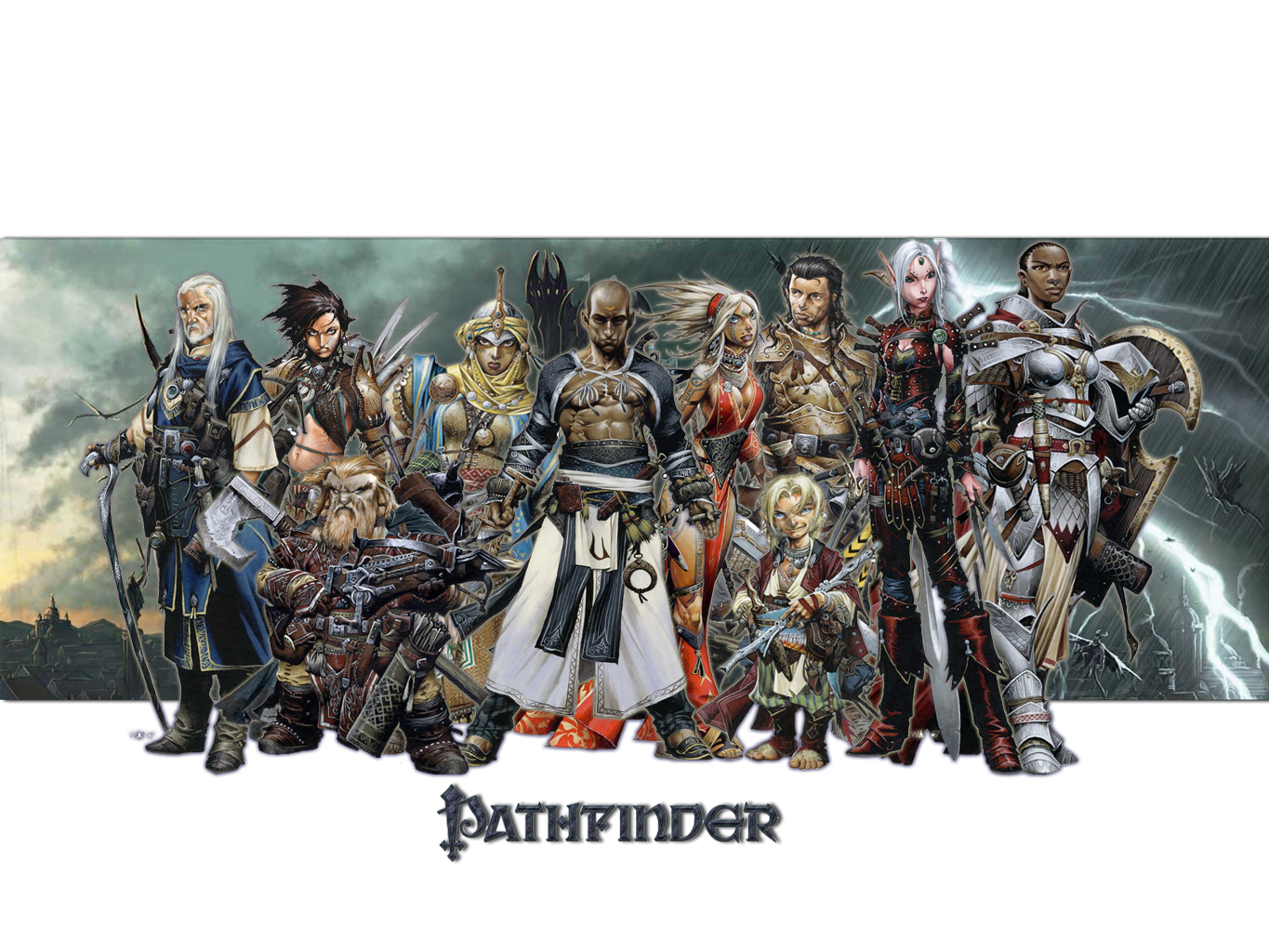
Core Class Reunion.
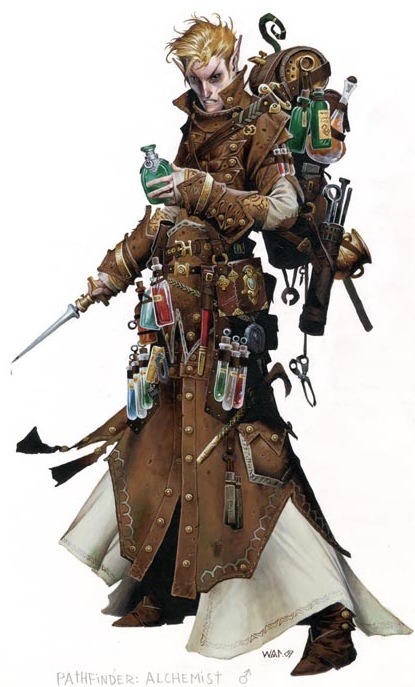
“They called me mad, mad! Well, I’ll show them, I’ll show them all… as soon as they all stand 5′ from each other.”

Cavalier treats revolving doors as difficult terrain.
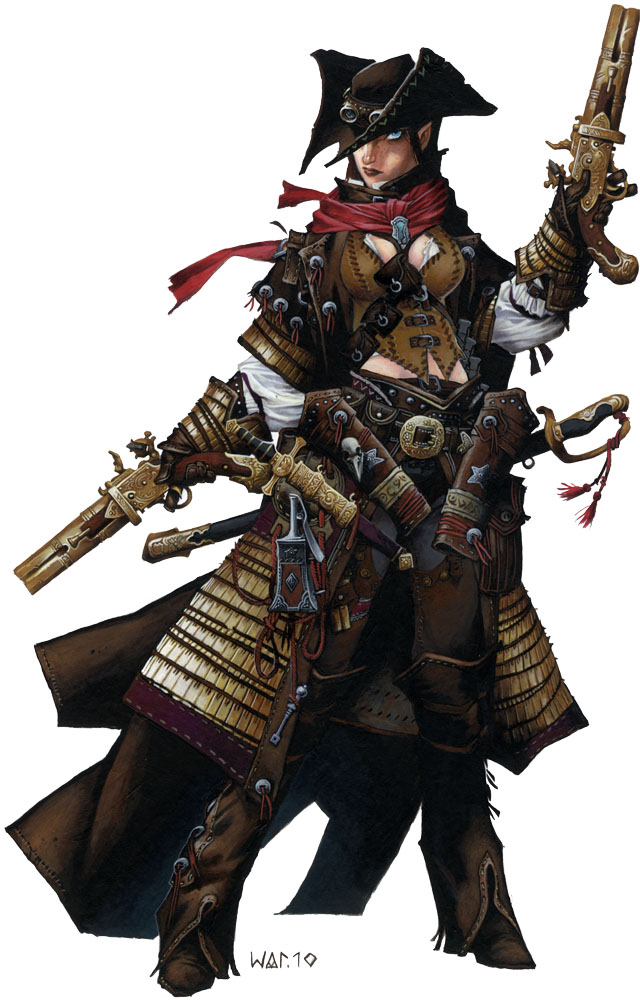
Her bones are made of pure Adam Ant-ium!
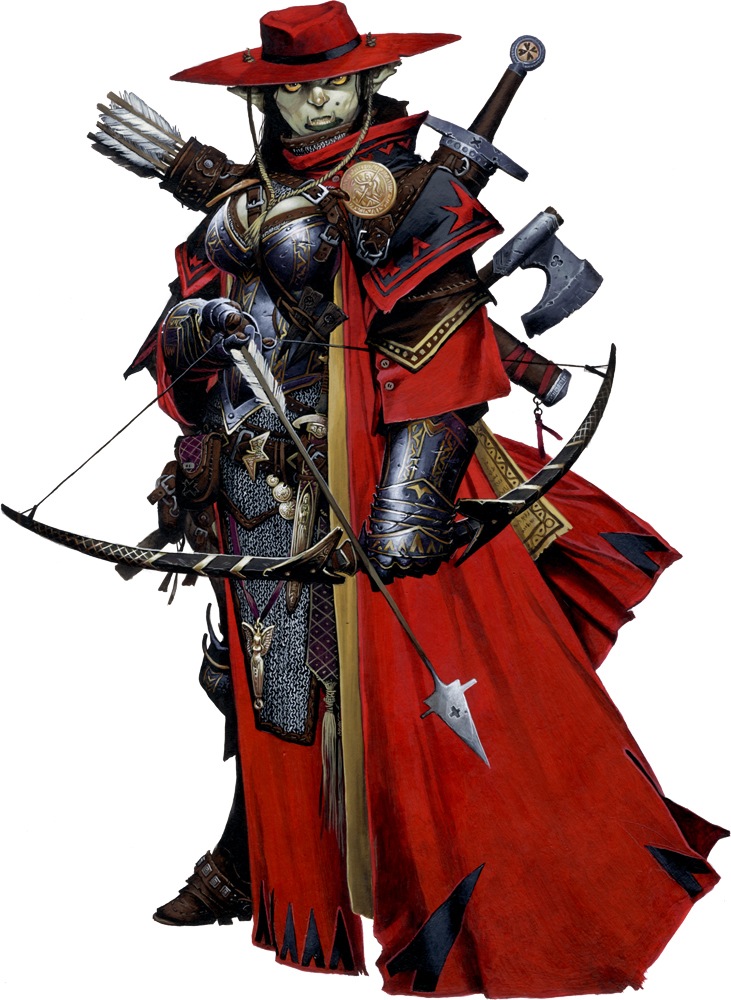
Oh, THAT is where in the world Carmen Sandiego is, hiding behind those ridiculous bewbs. Could luck drawing your bow with those rocks in the way.
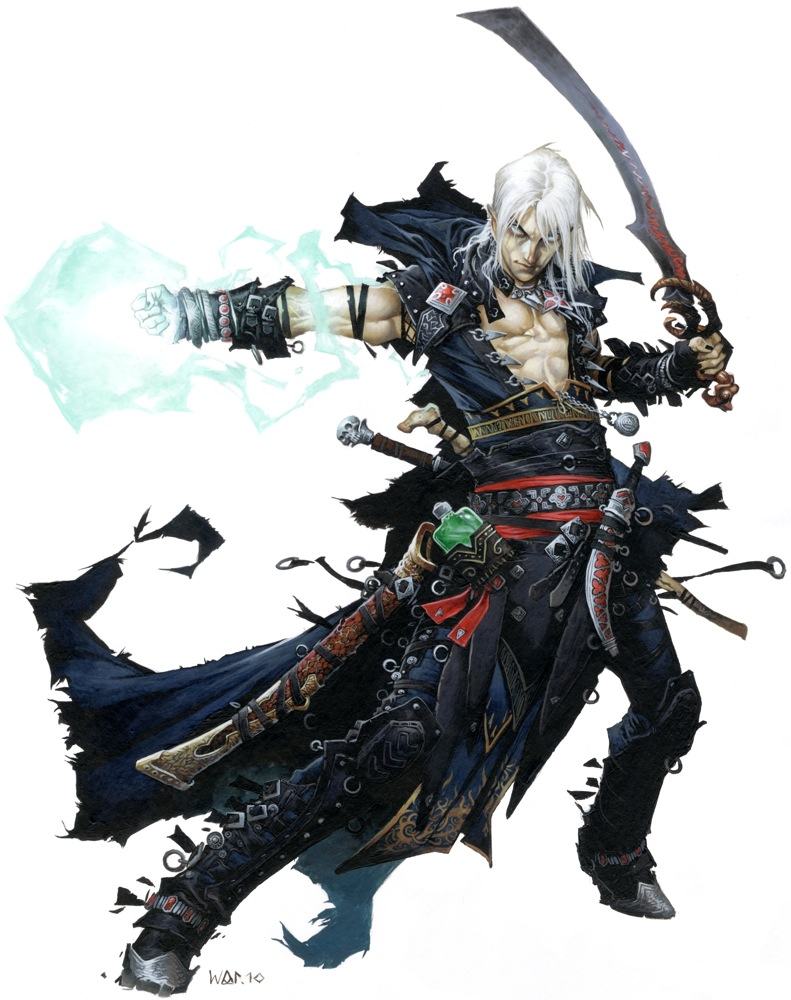
Magus is Latin, descended from the Greek “Magos”, which means “Now I really regret not bringing the Bard instead”.
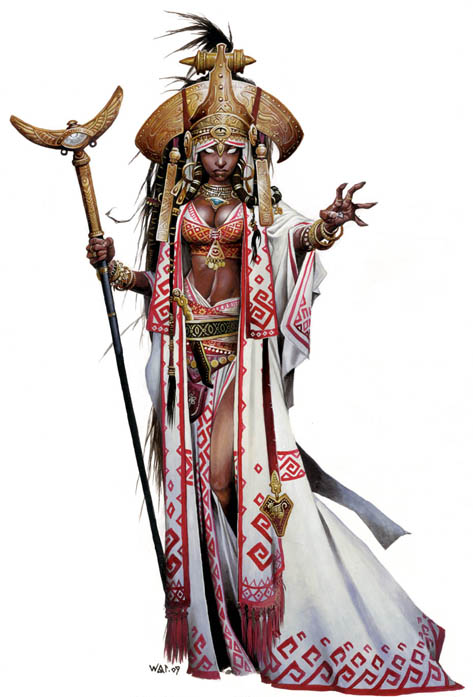
Handicapable black religious lady brings diversity to any adventuring party.

I could swear I know this guy… maybe a cousin of his?
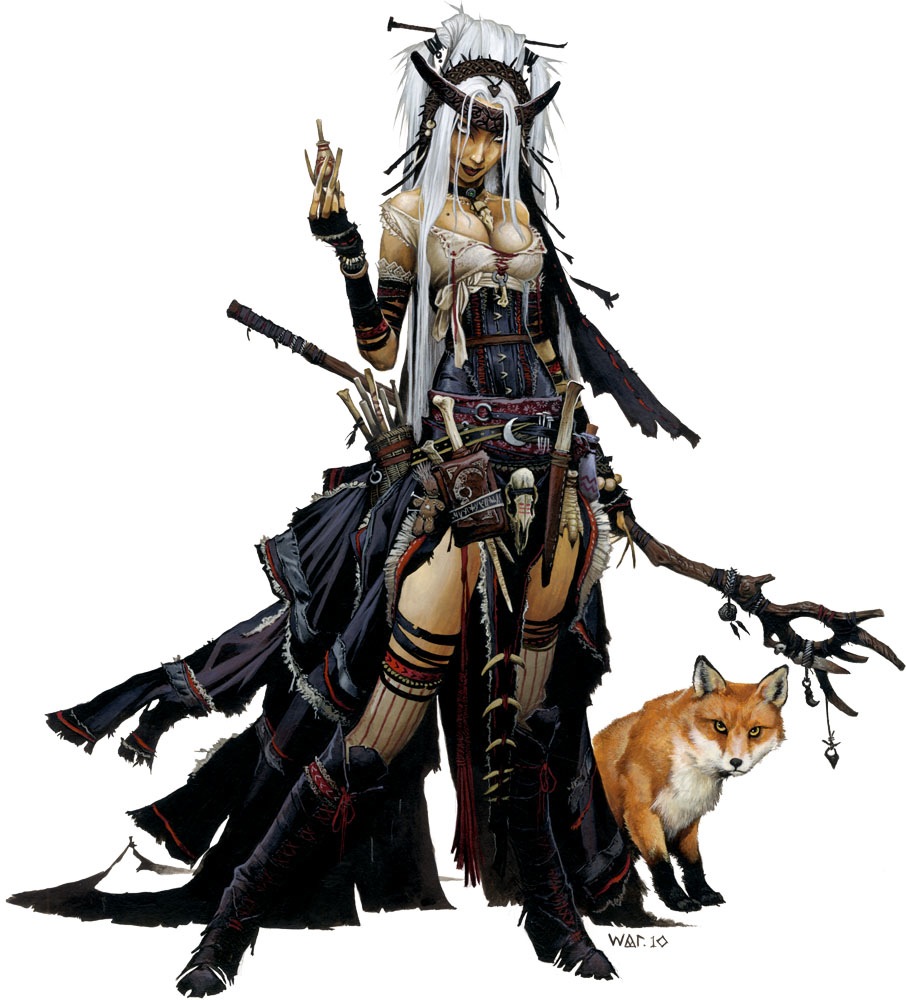
Young lady, you are not going out dressed like that. I don’t care if it is a Marilyn Madsen concert, you will catch your death of cold. And go and put your calipers on at once. You know what will happen to your soft leg bones if you don’t wear them.









I kind of like those wonkier classes. Oracle and Gunslinger in particular are two classes that present strategic/powergaming challenges but buy you some spiffy ways to do cool stuff. If I did something besides just picking minis when I choose classes after unplanned disintegration I probably would have chosen one of these just for the flavor. I guess this isn’t all that different from choosing an archetype that way.
Really I kind of love the Gunslinger the most out of all of them (illustration notwithstanding). Tying your debuff ability to taking risks is great for people like me that don’t get overly attached to their characters. Christ, I’m not sure Sean’s ever played any other class.